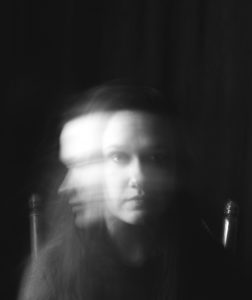Tag Archives: stigma
Invisible Battles
For most of my life, I’ve been fighting invisible battles which I had no name for. I always felt this inexplicable fear, dread or impending doom, like something terrible was going to happen.

It was only in the past few years that I’ve begun to understand what I’m contending with. I always knew something was wrong, I just didn’t know what it was.
I learned I have a condition called Generalized Anxiety Disorder or GAD for short. I also struggle with mild form of obsessive compulsive disorder and a severe case of Post traumatic stress disorder and a host of other invisible illnesses. I have a background of trauma which is what I thought was the only thing I was dealing with.
Putting a name to my conditions or symptoms didn’t change anything or make me feel any better. But, it just gave me understanding and confirmed some things.
However, once I knew, I stopped blaming myself and beating myself up for something I had no control over. It’s not my fault, and if you struggle, neither is it yours. And no, struggling with this condition doesn’t make you any less of a Christian either.
Please stop listening to Christians who tell you, you lack faith. Forgive their ignorance and pray for them to get wisdom and understanding. Unfortunately, they won’t be the only ones you’ll face where stigma exists. Sometimes you’ll get it from the ones closest to you, like those in your own household, family and even friends.
So what are you to do if you struggle and fight your invisible battles in silence? What I found helpful is reading or listening to books on the subject. Recently, I read two amazing books by Matt Haig; Reasons to Stay Alive* and Notes on a Nervous Planet.* Another thing I found helpful are support groups. NAMI is an excellent resource.
You don’t have to fight your battles alone. There is help and hope.
*Affiliate Links
The Mentally Ill Christian
It’s hard to have mental illness, but it’s even harder for a Christian.
Most days, it feels like you’re drowning. Drowning in isolation, fears, and worries that shoot at you like a barrage of stray bullets.
If only it would stop. If only there was peace.

Photo by Davide Pietralunga on Unsplash
Unfortunately, most don’t understand what it’s like, not even the Church. Where acceptance, understanding, and tolerance should exist, but doesn’t.
They treat you like they are flicking a piece of lint off of their lapel. There’s no understanding, support and even compassion for those suffering and their families. They’re only willing to offer you cheap platitudes as a way to assuage their conscience.
Many sufferers are forced into silence due to the stigma, lack of acceptance and intolerance.
The pain of being misunderstood and rejected gets tucked away like tidy towels in a linen closet.
But, nothing can erase the guilt and shame of a broken brain.
Christian’s suffering from mental illness have mastered the art of pretending. They’ve had to become world class actors to survive because most people–inside and out of the Church–simply can’t handle the truth.
What is the solution? Optimally, it would be for Churches to get on board and educate the congregation on mental illness to eradicate the stigma.
The more education and awareness, the less stigma will exist in and outside the Church.
People shouldn’t have to feel alone, misunderstood, isolated, rejected and marginalized in the Church. The Church should be a place of refuge and a catalyst for change to bring hope and healing for families.
Posted in anxiety, bi-polar, blogging, christianity, disability, faith, OCD, PTSD
Also tagged Acceptance, Anxiety, Awareness, Christianity, Christians, Church, mental health, Mental Illness, Tolerance
Leave a comment
What Mental Illness Should Not Be
I hear terms like, “the weather is so bi-polar,” or “I’m just a little OCD,” and I cringe. When people say things like this, they have no idea what they are saying.

Photo by Callie Gibson on Unsplash
Terms like these are used loosely all the time. For the record, there is no such thing as being a little OCD.
Just because you are clean and meticulous doesn’t mean you suffer from OCD. OCD is a serious mental illness and those who have it suffer a lot and it’s no laughing matter.
Being clean and organized has nothing to do with the fastidiousness of washing your hands countless times a day to the point of bleeding. Those who suffer from OCD will tell you unabashedly, it’s like living a reoccurring nightmare.
OCD is a debilitating disease that never goes away. And, as with most mental illnesses, there is no cure.
Sometimes people associate all mental illnesses with psychosis which is a separate diagnosis. Here is a short clip of what psychosis is like: https://www.bbc.co.uk/programmes/p0783qvh.
Society dumps everything in one batch. When they think bi-polar or schizophrenia, they automatically associate it with being “crazy or like I mentioned in my previous post, “Psycho.” But, nothing could be further from the truth.
Mental illness is the result of a brain disorder that affects your mood, thinking and behavior.
For example, with OCD, there’s a barrage of uncontrollable, reoccurring thoughts (obsessions) and behaviors (compulsions) that he or she feels the urge to repeat over and over. They can’t stop it or snap out of it either.
According to the National Institute for Mental Health, bi-polar disorder, also known as manic-depressive illness, is a brain disorder that causes unusual shifts in mood, energy, activity levels, and the ability to carry out day-to-day tasks.
Bottomline, mental illness (i.e., OCD, bi-polar, schizophrenia) should not be the butt of jokes, the brunt of mockery, or made light of nor misinterpreted, misrepresented or stigmatized. Because mental illness is not fun or funny. Those suffering from it live in constant torment and daily torture and they hide in shame and suffer in silence due to all the ignorance floating around.
Which is why I’m speaking up to help end the stigma on #MentalHealthAwarenessMonth.
Posted in anxiety, bi-polar, blogging, mental illness, OCD, PTSD, writing
Also tagged BCC, Bi-polar, Bi-polar disorder, Brain, brain disorders, chronic illness, David Harewood, Debilitating, Depression, disability, Illness, Manic Depression, mental health, Mental Illness, MentalHealthAwarenessWeek, Mentally Ill, Mood disorders, National Institute for Mental Illness, Not a Joke, Not Funny, OCD, Psycho, Psychosis, Psychosis and Me, Schizophrenia, Silence, StoptheStigma
Leave a comment
I’m Coming Out. My Confession.
As a child, I remember thinking differently than my peers. I felt like an outsider. Like I was on the peripheral looking in at life happening around me. Sort of like watching a movie.

Photo by Ian Espinosa on Unsplash
By the time I reached junior high school, it worsened. I had confided in a school friend who would listen to me for hours while I lamented as tears ran down my face like a faucet.
I somehow had the wherewithal at fourteen to find a therapist which I paid for with my allowance I had earned by ironing my father’s shirts. She had diagnosed me with dysthymia (persistent mild depression). I saw her weekly until she fell asleep in one of our sessions.
In my late teens, I remember things becoming more pronounced. One day I would wake up full of energy and be ready to take on the world, and the next, I would feel utterly hopeless and depressed. There was no explanation for these extreme shifts in mood.
The fluctuating moods were accompanied by my loyal companions; fear, dread, worry and guilt. I didn’t know at the time I was struggling with anxiety until I had experienced my first panic attack in my late twenties.
By that time, I had become impulsive and spontaneous. I would feel a surge of energy pulsate through my body like electricity which made me feel invincible. There was so much I wanted to do and accomplish that I wouldn’t sleep.
I took unnecessary risks and made bad decisions that if it wasn’t for the grace of God, I’m sure things would have ended badly.
I was enthusiastic, adventurous and lived for the thrill of excitement. Everything I did was over the top, exaggerated and extreme. I flirted with danger because I was addicted to the adrenaline rush and loved the exhilarating feeling it gave me.
In this state, everything seemed alive and vibrant. Life was good.
Until it wasn’t…
It was only a matter of time until the dreaded crash came. I went from being high to drowning in a sea of hopelessness and sinking into a quicksand of despair. Everything around me became devoid of color; a still life black and white photo; grey, lifeless and dull.
The rollercoaster high’s and low’s kept happening, combined with an ever present restlessness and gnawing irritation, like stew simmering in a crockpot or a rumbling car motor that never seems to shut off or a dormant volcano brewing beneath the earth’s surface.
I lived like this for years not knowing why.
Fifteen years ago, things came to a head after giving birth to my eldest son. I had suffered from postpartum depression. My son was colic and would cry all night. I wasn’t getting any sleep and worked a stressful job. Between the lack of sleep and stress, I began to spiral. It was then that a therapist suggested I get evaluated by a psychiatrist.
After an hour and a half hour of what felt like an interrogation, I received the verdict. Her words shot out like fists punching my face.
I didn’t believe her, so I went for a second opinion and was given the same diagnosis.
********
After years of hiding behind the shame and living in silence, I decided to come out.
I’m a Christian who suffers with chronic pain and physical and mental illness. And I am not alone. There’s plenty of people out there struggling like me, who lurk in the shadows because of shame and fear of being found out.
They vacillate between denying their illness, pretending away their illness or praying away their illness, thus refusing treatment they so desperately need.
Instead, they self-medicate by either drinking, drugging, eating, spending or sexing.
*******
I’m speaking specifically to Christians right now, if you are struggling with mental illness, don’t allow the church or anyone from church tell you mental illness is a spiritual problem because it isn’t. Please don’t listen to anyone who tells you, you lack faith or you must have unconfessed sin or that you aren’t praying or fasting enough.
Mental illness is not a spiritual condition, but a medical one that needs to be treated like diabetes or cancer.
Please contact your local National Alliance for Mental Illness (NAMI) and get support. You don’t need to suffer in silence or struggle alone.
*******
Silence is the result of stigma and judgment by family members, friends, co-workers, church members, and society in general who aren’t educated and misunderstand, misinterpret, and marginalize those who suffer from mental illness or any invisible illness.
*******
Truthfully, these past two years have been the most difficult for me. My life has completely changed and it’s been hard for me to reconcile and adjust to. Believe it or not, it’s taken me over 15 years to finally accept my diagnoses.
I didn’t want to come out because most people walking around react to words like bi-polar, OCD or schizophrenia as a joke or they associate it with characters from “Psycho,” “One Flew Over the Cuckoo’s Nest,” or “A Clockwork Orange.”
This is why I’ve kept it hidden for so long, but now I no longer want to because there’s too many people suffering in silence. For this reason, I chose to come out and join the tribe of other voices advocating and fighting against the stigma.
Posted in anxiety, bi-polar, blogging, christianity, faith, Medium, mental illness, OCD, PTSD
Also tagged Alcholic Anonymous, alcoholism, Anxiety, Awareness, bipolar, Blogging, Christianity, Christians, chronic illness, Corporate America, Davis Polk, Depression, disability, faith, Illness, invisible, law firm, mental health, Mental Illness, Mentally Ill, NAMI, OCD, postpartum depression, prayer, PTSD, Suicide, Unanswered prayers
2 Comments
His Bright Light by Danielle Steel
 Paperback: 336 pages
Paperback: 336 pages
Publisher: Delta; Reprint edition
Price: $10.69
Purchase: Amazon
Description
“This is the story of an extraordinary boy with a brilliant mind, a heart of gold, and a tortured soul. It is the story of an illness, a fight to live, and a race against death.
I want to share the story, and the pain, the courage, the love, and what I learned in living through it. I want Nick’s life to be not only a tender memory for us, but a gift to others. . . . I would like to offer people hope and the realities we lived with. I want to make a difference. My hope is that someone will be able to use what we learned, and save a life with it.”—Danielle Steel
From the day he was born, Nick Traina was his mother’s joy. By nineteen, he was dead. This is Danielle Steel’s powerful, personal story of the son she lost and the lessons she learned during his courageous battle against darkness. Sharing tender, painful memories and Nick’s remarkable journals, Steel brings us a haunting duet between a singular young man and the mother who loved him—and a harrowing portrait of a masked killer called manic depression, which afflicts between two and three million Americans.
At once a loving legacy and an unsparing depiction of a devastating illness, Danielle Steel’s tribute to her lost son is a gift of life, hope, healing, and understanding to us all.
***Vlog Review: https://youtu.be/YC8qgK_JpQQ***
Review
His Bright Light was written as a tribute to Danielle Steel’s son, Nick Traina who was born with bi-polar disorder and committed suicide at the age of nineteen.
This is a well written, detailed account chronicling his life and everything he/she went through trying to get help within the medical community. The failures and the successes, the ups and downs, the sadness and the joy.
It was heart wrenching and difficult for me to read. I had to put it book down a couple of times, because I felt bad for Nick and all he suffered, as well as Danielle Steel and her family.
Mental illness is real and it not only effects the person who is suffering from it, but it also impacts everyone else around them.
At that time, there wasn’t as much information regarding treating bi-polar disorder, (otherwise known as manic depression) as there is now. Although I’m grateful to see there have been strides in the medical field, there is still more to be uncovered and revealed regarding brain disorders.
I get into more detail about my thoughts in my vlog review.
If you want to learn more about what bi-polar looks like, I highly recommend His Bright Light.
Posted in bi-polar, book reviews, mental illness
Also tagged Bi-polar disorder, brain disorders, Danielle Steel, His Bright Light, Mental Illness, Nick Traina, Suicide
Leave a comment
